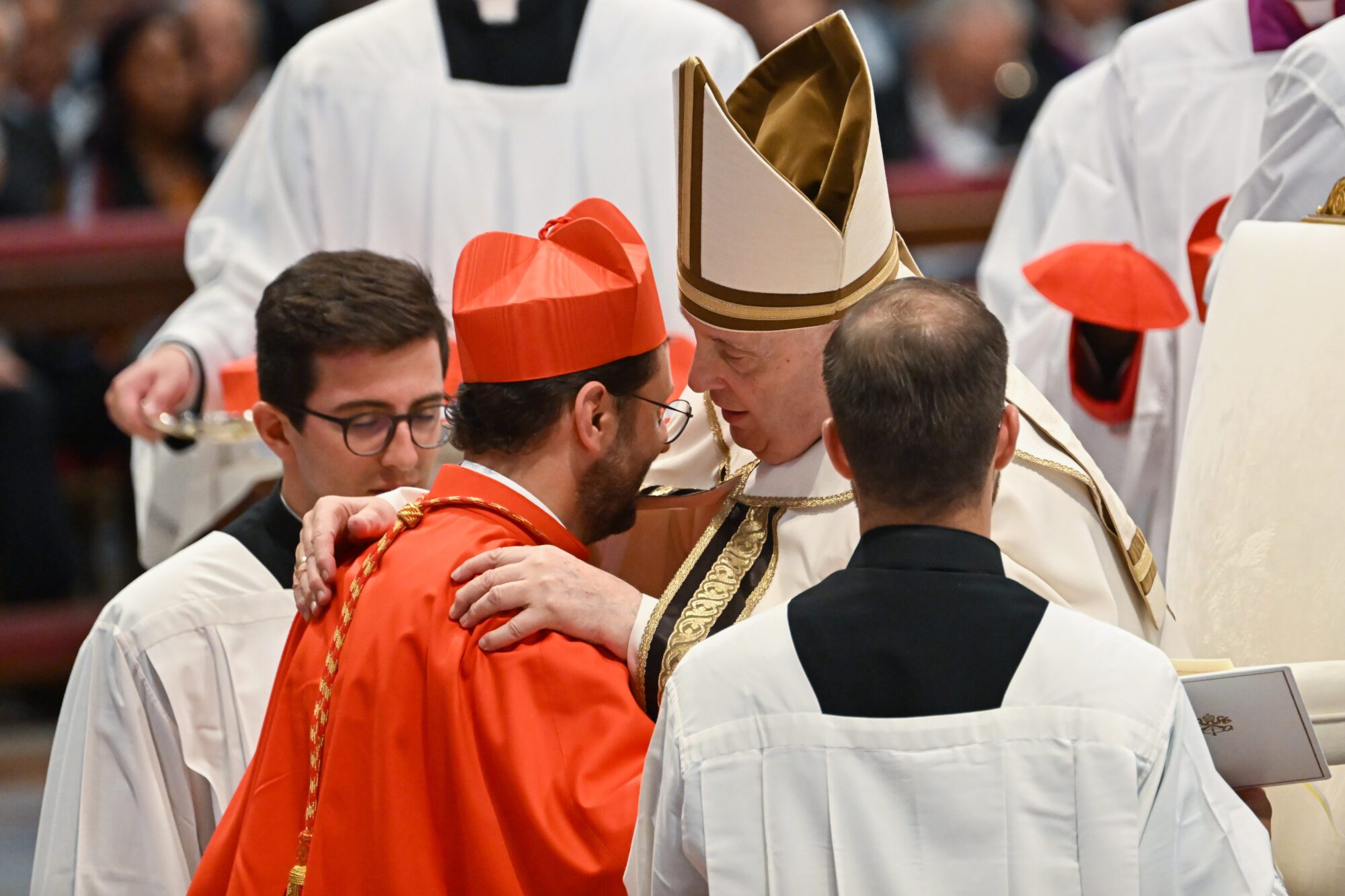
True to his habit since his election in 2013, Pope Francis announced the creation of 21 new cardinals for the next consistory to be held on September 30th, 2023. Over the past 10 years of his pontificate, this is the ninth time he has done so—an intensive pace in contrast to the habits of his predecessors—a privileged means for him to guarantee his ‘line of succession’ by appointing personalities faithful to his pastoral orientations.
The election of his successor is obviously on his mind. Given the rate at which new cardinals are being created (121 since 2013), Pope Francis can hope that when the time comes there will be a majority—two-thirds of the cardinals, to choose the new pope, made up entirely of cardinals appointed by him.
’Election security’ is made all the more obvious by the fact that there is no numerical obligation of cardinals to meet. Currently, there are 137 cardinal electors in the College of Cardinals under the age of 80, whereas the minimum quorum set by the regulations is 120.
By way of comparison, Pope John Paul II convened only nine consistories in 25 years, and Benedict XVI, five in eight years of his pontificate. Pope Francis has enacted, then, a change of method, in terms of both numbers and substance. Whereas John Paul II and Benedict XVI took care in their appointments to give the College of Cardinals a certain diversity, by choosing profiles with a variety of tendencies, it is to the contrary that a certain ‘ideological’ uniformity prevails in Francis’ choices, with rare exceptions.
The stated aim of the 2023 consistory is to increase the “universality of the Church,” i.e. increase the number of non-European cardinals, particularly from Africa, Asia, and Latin America. On the African side, there are the archbishops of Juba (South Sudan), Cape Town (South Africa), and Tabora. On the European side, we can find in the list the Archbishop of Łódź for Poland, Msgr. Grzegorz Ryś, and the Archbishop of Madrid, Msgr. José Cobo Cano. France is honoured by two new cardinals, Msgr. Christophe Pierre, Apostolic Nuncio to the United States, and Msgr. François-Xavier Bustillo, a Franciscan bishop of Ajaccio. Msgr. Pierre was Pope Francis’ armed wing in the application of the motu proprio Traditionis Custodes in the United States, in the midst of fierce criticism. Latin America is also well represented, with five cardinals.
Among the most controversial appointments, of course, is the Argentinian Archbishop Víctor Manuel Fernández, whom Pope Francis has just named as Prefect at the head of the Dicastery for the Doctrine of the Faith—an eminently symbolic post, since it was the one held by Cardinal Ratzinger during the pontificate of John Paul II. Described as Pope Francis’ theological mentor, Archbishop Fernández has made a number of controversial statements and makes no secret of his desire to propose a ‘new theology’ for the Catholic Church, as demonstrated by his role in drafting the encyclical Amoris Laetitia. In his archdiocese of La Plata, he has taken radical measures with regard to the faithful attached to the traditional liturgy, ordering in December 2018 that all Masses be celebrated only in the Novus Ordo, in the vernacular, and facing the people.
One may also draw attention to Jesuit Bishop Stephen Chow Sau-yan, presently the bishop of Hong Kong. Historically, he is one of the successors of venerable Cardinal Joseph Zen, formerly appointed by Benedict XVI. His spiritual succession, though, is not as evident. Consecrated bishop of Hong Kong in December 2021, Chow Sau-yan is known to be a warm supporter of Church reconciliation with the Communists.
Of the 21 cardinals appointed, 18 will be able to vote in the next conclave, as only those under 80 are eligible to vote.
